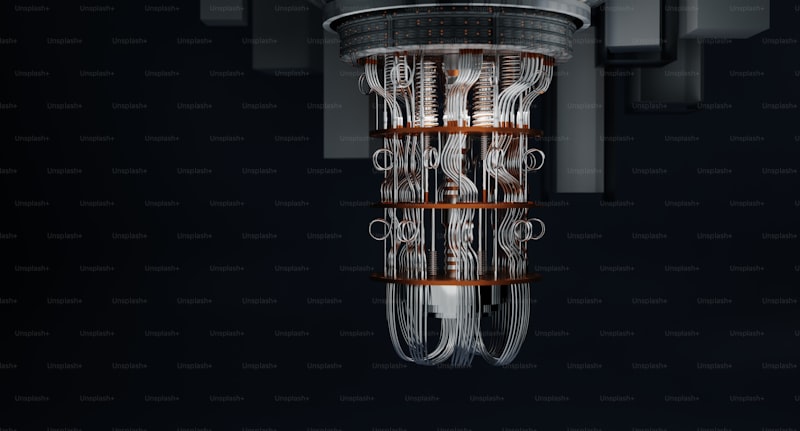Replacing your car’s fuel filter at regular intervals is recommended by most manufacturers. Typically, this interval can vary depending on your vehicle’s make and model, but it’s generally advised to replace it every 20,000 to 40,000 miles or every 2 years, whichever comes first. However, if you frequently drive in dusty or dirty conditions, or if you notice any symptoms of a clogged filter such as sluggish acceleration or difficulty starting the engine, you may need to replace it more frequently.
The process of replacing a fuel filter involves locating the filter (which can be under the car near the fuel tank or in the engine compartment), safely relieving the fuel system pressure, disconnecting the old filter, and installing a new one. It’s important to follow manufacturer guidelines and use the correct type of filter for your specific vehicle to ensure compatibility and optimal performance.
By maintaining a clean fuel filter, you not only help your engine perform efficiently but also extend the life of other critical engine components. Think of it like regularly cleaning the air filters in your home — it allows the engine to “breathe” better, ensuring smoother operation and potentially saving you from costly repairs down the road.
Understanding the basics of car fuel filter replacement empowers you to take proactive steps in caring for your vehicle’s engine health. Whether you’re a DIY enthusiast or rely on a mechanic, staying informed about this essential maintenance task ensures your car continues to run smoothly mile after mile.
Fuel Filter 101: Your Complete Guide to Car Maintenance
Fuel filters might just be one of the unsung heroes of car maintenance. They play a crucial role in keeping your engine running smoothly and efficiently. Essentially, a fuel filter cleanses the gasoline or diesel before it reaches the engine, ensuring that only clean fuel passes through. This process prevents dirt, debris, and other contaminants from clogging the fuel injectors or carburetor, which could otherwise lead to engine performance issues or even damage over time.
Why is this important? Picture your car’s engine as a finely tuned orchestra. Just as a conductor ensures each instrument plays harmoniously, a fuel filter ensures that your engine components work together seamlessly. Without a clean fuel supply, your engine might struggle, leading to reduced fuel efficiency, sluggish acceleration, or even stalling.
Regularly replacing your fuel filter is vital. Over time, filters accumulate dirt and grime, which can impede fuel flow. Most manufacturers recommend replacing the fuel filter every 20,000 to 30,000 miles, but this can vary based on your driving habits and the quality of fuel you use.
Changing a fuel filter isn’t overly complex, but it’s essential to do it right. It typically involves locating the filter, relieving the fuel system pressure, disconnecting the old filter, and installing a new one. If you’re not confident in DIY car maintenance, it’s best left to a professional mechanic to ensure it’s done correctly.
Maintaining your car’s fuel filter is a small yet significant step in ensuring your vehicle runs smoothly and efficiently. By regularly replacing it, you’re not only extending the life of your engine but also optimizing fuel economy and performance. So, next time you’re thinking about car maintenance, remember the humble fuel filter and its role in keeping your ride in top shape.
This article provides an informative overview of fuel filters, emphasizing their importance in car maintenance while maintaining a conversational and engaging tone.
Why Your Car Needs a Fuel Filter Upgrade Now
Imagine your car’s engine as a gourmet chef in a busy kitchen. It needs the finest ingredients (fuel) to create the perfect dish (power). The fuel filter acts as a vigilant sous chef, meticulously sieving out any impurities or contaminants that could spoil the recipe. Over time, these impurities can clog up the filter, reducing its effectiveness and potentially causing harm to your engine.

Upgrading your fuel filter is like giving your car a refreshing detox. It allows clean, pure fuel to flow freely to the engine, ensuring optimal combustion and performance. This means better acceleration, smoother idling, and improved overall efficiency. Who wouldn’t want their car to run like new again?
But it’s not just about performance; it’s also about longevity. A clean fuel filter helps protect your engine from premature wear and tear. Think of it as insurance for your car’s heart—keeping it healthy and running strong for miles to come.
Nowadays, with more advanced engines and higher fuel demands, the role of the fuel filter is more critical than ever. It’s not just about filtering out the usual suspects like dirt and rust; modern fuel filters are designed to tackle even microscopic particles and contaminants that could wreak havoc on your engine’s delicate components.
So, if you’ve been noticing your car’s fuel efficiency dropping or experiencing rough starts, it might be time to consider upgrading your fuel filter. It’s a relatively inexpensive maintenance item that can have a big impact on your driving experience. After all, a happy engine makes for a happy driver!
Ready to give your car the TLC it deserves? Consider upgrading your fuel filter today and feel the difference yourself. Your car will thank you with smoother rides and fewer visits to the mechanic.
Expert Tips: When to Change Your Car’s Fuel Filter
Is your car showing signs of sluggishness or experiencing rough idling? It could be time to pay attention to your fuel filter. Expert mechanics often stress the importance of timely fuel filter changes to ensure optimal engine performance and longevity.
A fuel filter plays a crucial role in your car’s fuel system by trapping contaminants such as dirt, rust particles, and other debris that can potentially clog fuel injectors and affect engine efficiency. Over time, these impurities accumulate, reducing fuel flow and causing engine misfires or difficulties starting the vehicle.
But when exactly should you change your car’s fuel filter? The general recommendation is every 30,000 to 50,000 miles, but this can vary based on your driving habits and the type of vehicle you own. If you frequently drive in dusty or polluted environments, you might need to replace it more frequently to prevent buildup.
How do you know if it’s time for a fuel filter change? Look out for symptoms like decreased fuel efficiency, engine hesitation under acceleration, or even difficulty starting your car. These signs indicate that your fuel filter may be obstructed and needs attention.
Imagine your car’s fuel system as a lifeline, where the fuel filter acts as a gatekeeper, ensuring only clean fuel reaches your engine. Just like how you regularly maintain your health with check-ups, your car needs regular inspections and maintenance to perform at its best.
In essence, staying proactive with fuel filter changes can prevent more costly repairs down the road and keep your engine running smoothly. So, next time you notice any of these symptoms, consider it a gentle nudge from your car to give its fuel filter some care.
Essential Steps for DIY Fuel Filter Replacement
Before you begin, gather all the necessary tools and materials. You’ll typically need a new fuel filter (make sure it’s compatible with your vehicle), a set of wrenches or socket set, safety glasses, gloves, rags or paper towels, and a container to catch any fuel spills.
Park your car in a safe, well-ventilated area and engage the parking brake. Relieve the fuel pressure from the system by either disconnecting the fuel pump fuse or relay and then starting the engine until it stalls, or by using a fuel pressure gauge to release the pressure from the Schrader valve.
The fuel filter is usually located along the fuel line, either under the car or in the engine compartment. Consult your vehicle’s manual to locate it precisely. Once found, inspect the filter and its connections for any signs of wear or leaks.
Carefully loosen the fittings on both sides of the fuel filter using the appropriate wrench or socket. Be prepared for some residual fuel to leak out, so keep your container and rags handy. Once the fittings are loose, carefully detach the fuel lines from the old filter.

Install the new fuel filter by reversing the removal process. Ensure the arrows on the filter point in the direction of fuel flow, as indicated by your vehicle’s fuel system. Tighten the fittings securely, but avoid over-tightening to prevent damage.
After installing the new filter, turn the ignition to the “ON” position (without starting the engine) to allow the fuel pump to pressurize the system. Check for any leaks around the filter connections. Once confirmed leak-free, start the engine and check again for leaks. Dispose of the old fuel filter responsibly.
Frequently Asked Questions
How often should I replace my car’s fuel filter?
Learn when and how often to replace your car’s fuel filter to maintain optimal engine performance and prevent potential damage. Follow manufacturer recommendations or replace every 20,000 to 40,000 miles for most vehicles, depending on driving conditions.
How much does it typically cost to replace a car’s fuel filter?
Learn about the typical cost of replacing a car’s fuel filter, including factors that affect pricing and average expenses.
What are the signs that my fuel filter needs replacement?
Learn to recognize signs indicating your fuel filter needs replacement. Look out for symptoms like engine hesitation, reduced fuel efficiency, difficulty starting, and engine misfires. Regular maintenance helps ensure optimal engine performance.
Can I replace the fuel filter myself, or should I go to a mechanic?
Yes, you can replace the fuel filter yourself with basic automotive knowledge and tools. However, if you’re unsure or uncomfortable with DIY car maintenance, it’s advisable to have a mechanic handle it to ensure proper installation and safety.
What is a fuel filter and why is it important for my car?
A fuel filter is a component in your car’s fuel system that screens out contaminants from the fuel before it reaches the engine. It is crucial for preventing debris and impurities from clogging the fuel injectors and other critical engine parts. Regular replacement of the fuel filter helps maintain engine performance and efficiency.



